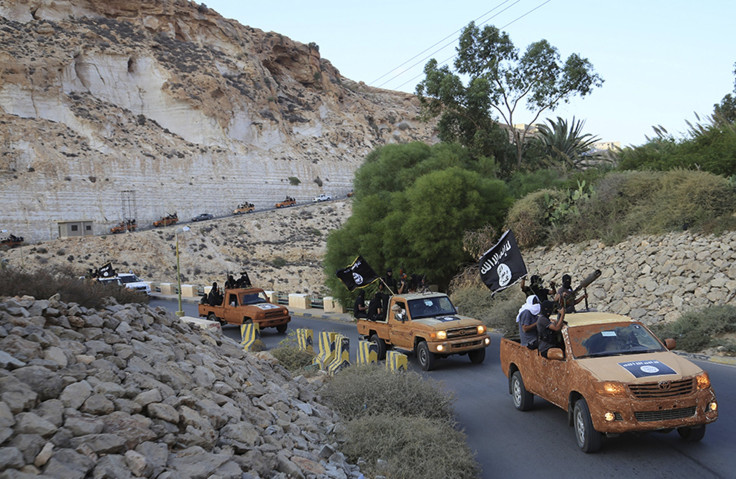ISIS Establishes Stronghold In Derna, Libya

Libyan fighters who pledged allegiance to the Islamic State group are gaining supporters and resources and are consolidating power in the eastern city of Derna, close to the Egyptian border, turning it into the first city outside of Iraq and Syria to have a recognized ISIS presence.
An Islamic State group presence first emerged in Libya in September, when Sunni militias associated with al Qaeda in the Islamic Maghreb pledged allegiance to the group also known as ISIS, hoping that the infamous name would give them leverage and support from outside forces.
Scores of militants in #Libya's Derna pledge loyalty to ISIS chief in night rally http://t.co/UCdiyjakce http://t.co/8XcMyuNIyq @Reuters
— Borzou Daragahi (@borzou) November 1, 2014Hundreds of other militants officially pledged allegiance on Oct. 31.
For the past several days, militias in Derna have been fighting each other. There are several factions operating in the city, and each one claims to have a different philosophy and goal. The Abu Salim Martyrs Brigade and the Islamic Youth Shura Council began fighting each other in September, in clashes that killed dozens of civilians. The Islamic Youth Shura Council, which was created last April, is more extremist in nature than the other two groups, and several of its fighters have pledged allegiance to the so-called Islamic State. The group, rivaling ISIS in its barbarity, has carried out public executions at the local football stadium in Derna, Al Monitor reported last month.
The clashes among rival militias grew in intensity over the weekend. On Monday, two suspects were arrested in connection to twin car bombings near a location where a U.N. envoy was meeting with the prime minister, according to a report by the Associated Press. The suspects are from Derna, security officials said Monday.
Activists in #Benghazi: #Derna awaiting liberation from militants http://t.co/pBTRCajn2E pic.twitter.com/sosPAglOdT
- Alwasat (@alwasatengnews) October 25, 2014Eastern Libya has experienced for months now an escalation of violence as renegade Gen. Khalifa Hifter expanded his fight against Islamist militias. Hifter, who is originally from the eastern part of the country, supported dictator Moammar Gadhafi but turned against him in the 1980s during the war with Chad. Over the summer, he staged an offensive against the Tripoli government with the support of tribes in his home area, and attacked military bases and the parliament building in Tripoli. Now, though, Hifter has joined forces with the Libyan parliament, which has moved to Tobruk in the east, to fight Islamist rebels, particularly in Benghazi.
Libya is suffering what is quickly turning into a full-fledged civil war. The international community, which conducted an air bombing campaign in 2011 to help rebels oust Gadhafi after a 42-year dictatorship, is showing signs of increasing worry that Libya may turn into a jihadist haven on the doorstep of the European Union.
Western nations threatened to impose sanctions if the fighting in Libya did not stop. The sanctions would impose travel restrictions and asset freezes on those "who threaten the peace, stability or security of Libya or obstruct or undermine the political process," according to a joint statement by the governments of France, Italy, Germany, the United Kingdom and the United States.
The statement does not say who might be hit by the sanctions, but it does "condemn the crimes of Ansar al-Shariah entities," referring to jihadist militias, and says the governments are "concerned by Khalifa Hifter’s attacks in Benghazi." U.S. senior officials also condemned the airstrikes on Islamist fighters conducted last month by the United Arab Emirates with the help of Egypt, saying that they would only lead to more infighting.
© Copyright IBTimes 2024. All rights reserved.



















